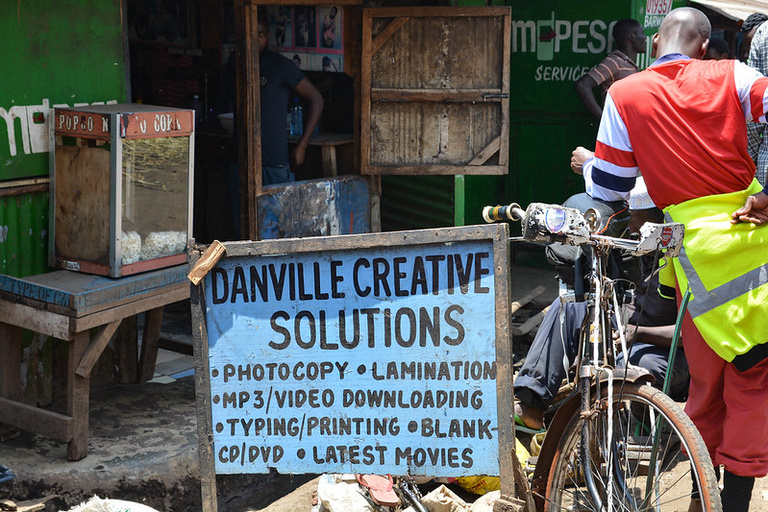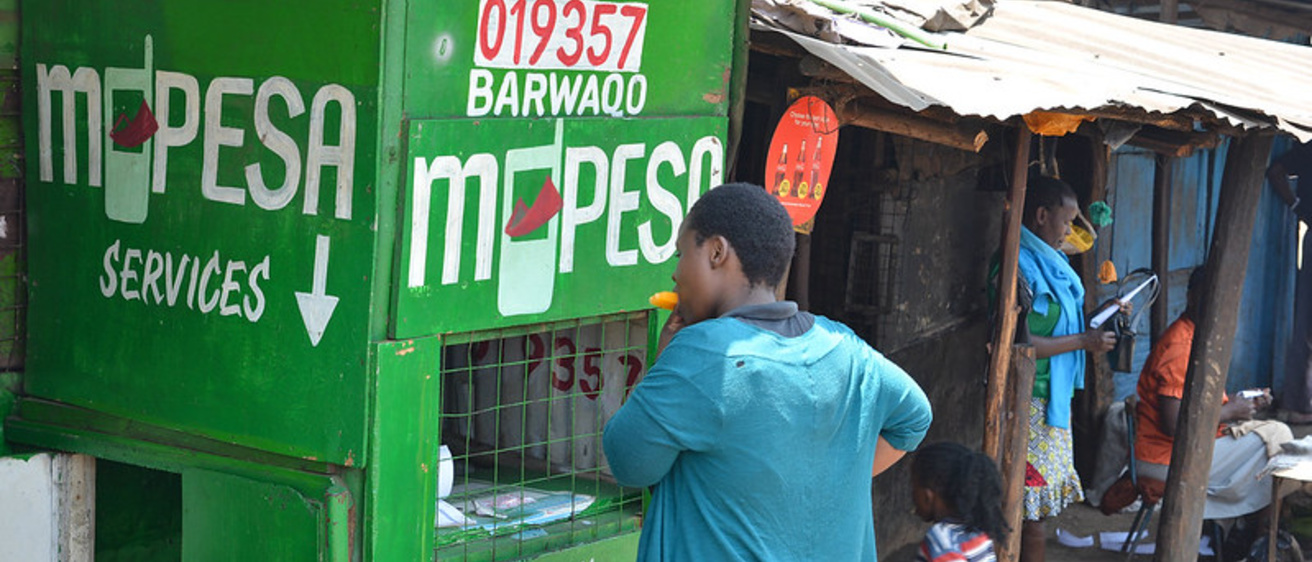
Brian Ekdale, a filmmaker and media scholar, is pondering what Kenya’s robust gig economy has to teach us at this moment of global crisis. Jua kali describes the country's scrappy, entrepreneurial network of artisans, manual laborers, and tradespeople who fix things, make small-batch wares, and resell found or wholesale merchandise. The term has evolved to refer to a kind of work culture and ethos.
Ekdale's interest in African media came into focus when he had an opportunity to produce a documentary in southern Africa for his master’s thesis in 2005. “I was planning to work in film production,” says Ekdale, an associate professor in the School of Journalism and Mass Communication and a Spring 2020 Obermann Fellow-in-Residence. The resulting documentary, about a group of medical workers in Malawi, was screened at multiple festivals and won several awards.
“I was proud of the film from a technical standpoint, but I realized there were glaring weaknesses in the story due to my own ignorance about the region,” says Ekdale. It was then that his plans to work in film production changed, and he decided to pursue a PhD.
Focus on Kenya
While studying African media at the University of Wisconsin–Madison, Ekdale learned about an informal film school run out of Nairobi’s Kibera neighborhood, the largest urban slum in Africa. “A guy who had gone to film school at the University of Southern California was teaching young people how to make films,” he says. Ekdale ended up spending a year in Nairobi, working with and studying the program for a dissertation that he describes as “a media production ethnography of members of a marginalized community constructing and telling stories using visual media.”
Now, Ekdale is in the early phase of a new book project that is also focused on Kenya. Tentatively titled “Jua Kali 2.0: Digital Work and Kenya’s Informal Economy,” the project examines how digitization is affecting the long-running jua kali culture, and what participants in the growing global gig economy can learn from it.
“How can the Global North learn from this very entrepreneurial, strategic culture and translate its lessons to other cultures?” he asks.
Digitizing daily transactions

One of his primary research subjects are the shop owners who sell niche items, such as shoes or kitchen wares, in daily markets. While Kenya has its own version of Amazon, from which anything and everything can be purchased, these micro-merchants are alive and well, cleverly utilizing an ever-growing collection of digital tools. “Many of them market on Instagram,” explains Ekdale. “Then they’ll have a list of special customers who they [contact via] WhatsApp when they get new merchandise in. A customer sees something they like and indicates they want to buy it. If it’s still available, they can pay via an app called M-PESA, and then the merchant gives the product to a motorbike delivery guy, and off it goes.”
Just as good as Amazon. And likely a lot cheaper.
Talking during the second week of active COVID-19 sequestering in Iowa City, Ekdale made a nod to current events: “This kind of workaround is a lot like what we’re seeing local restaurants and shops do right now.”
Since the 1980s, global labor trends have shifted risk away from companies and on to individuals. The rise of temporary workers in the 1990s, followed by start-up culture, have put the onus of financial health on individual workers. Even in the arts, individuals are increasingly on their own as publishers and recording companies provide less security and promotional assistance. How do workers negotiate this world, especially when something really disruptive happens, such as the current pandemic, and there is no safety net?
The iron fist of Uber
This spring, Ekdale has been reading through the transcripts of interviews with small-scale merchants, as well as another batch of interviews he conducted with Uber drivers. Although Kenyans are still incomparable in their ability to repair nearly anything or take a single tomato plant and turn it into a lucrative business, the jua kali ingenuity seems to have met its match in the form of the monolithic multinational driving service.
Just as it’s done in other countries, Uber entered the Nairobi market in 2015 and offered a competitive price—about 65 shillings per kilometer--to drivers. Traditionally, Nairobi taxi drivers congregated in common places where would-be passengers found them and negotiated a price. The app has made it easier for drivers and passengers to find each other; without a doubt, the ease of Uber is universally appreciated. However, drivers who have signed on with the app-based conglomerate no longer have the ability to negotiate a price. While drivers used to take into account the nationality of the passenger (Kenyans always got a better deal than Europeans or Americans), Uber drivers can’t set the rates, which don’t take into account the current price of fuel or less predictable costs like vehicle repairs and police bribes. The going rate for Uber drivers is now less than half of what it started at—about 22 shillings per kilometer. Ekdale says this is no longer enough money for someone to make a livable wage without working a great deal of overtime.
Research in the midst of COVID-19
The mediation of labor and digital tools is at the heart of Ekdale’s project, along with the particularly Kenyan twist. He has imagined a book that would provide an overview of jua kali and then focus on specific sectors by chapter. Now, however, he is holding his breath. As with anyone studying contemporary issues, Ekdale’s research is on hold. His plans for a summer research trip are off. And while Kenya has so far been relatively spared from the pandemic, that could change.
Ekdale has been communicating with his friends in Kenya. “They are trying to stay positive, but no one really knows what’s going to happen.”
What he does know is that it’s more important now than ever to study how people manage risk in their work lives. “When this is all over, we will need to address the many the inequalities and insecurities of contemporary work,” says Ekdale. “And I think we can look to Kenya for some answers.”
